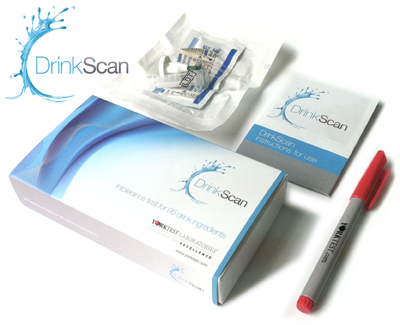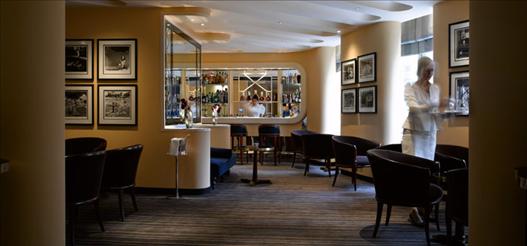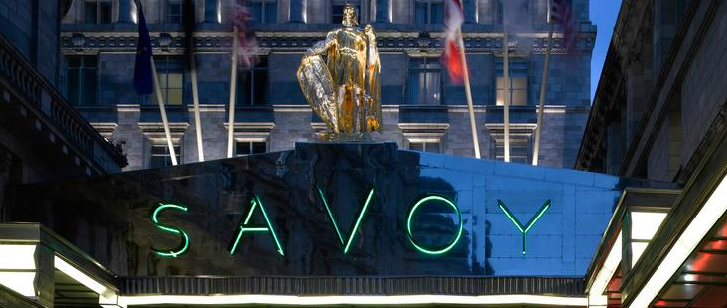DrinkScan by YorkTest Laboratories
 Well, to start with, this isn’t one of our usual blogs. Reason 1: We didn’t eat anything. Reason 2: We weren’t reviewing a bar and Reason 3: We were talking to doctors who had more letters after their names than a full bag of scrabble tiles! You know that we will try anything once (apart from country dancing) and for our latest blog, our clients wanted blood, literally! And no, they were not vampires…
Well, to start with, this isn’t one of our usual blogs. Reason 1: We didn’t eat anything. Reason 2: We weren’t reviewing a bar and Reason 3: We were talking to doctors who had more letters after their names than a full bag of scrabble tiles! You know that we will try anything once (apart from country dancing) and for our latest blog, our clients wanted blood, literally! And no, they were not vampires…
When the DrinkScan packages landed on our doormat we weren’t sure what to expect. Each box contains an instruction leaflet, an antiseptic wipe, a plaster, pen, return envelope, swab and the pin pricker! It’s a very easy step by step procedure to follow.
Now, Ade is a complete baby when it comes to injections and needles but (after about 10 minutes) he managed to do the pin prick test, swab the blood and post it back to YorkTest Laboratories, without any tears! They used our blood samples to analyse any intolerance we may have to drinks.

The American Bar... Recently named World’s Best Hotel Bar at the Tales of the Cocktail Spirited Awards
A week or so later we were invited to the Savoy, for a cocktail in The American Bar, to get our results and to meet Dr Hilary Jones. The bar was amazing and the cocktails even better, but the bar operates a ‘no standing’ policy and you really should have seen the little waiter’s face when 20 or so journalists descended on the bar on his watch! We just have to add that the whole ‘situation’ was handled so coolly by the brilliant Lisa and Kerry from Eye pr.
Now we are not going to even pretend to understand the science behind DrinkScan (we’ll copy and paste that from the press release!) But what we can tell you is their knowledge, passion and belief in the product is incredible. We were given our results sheet, (split into ‘Avoid’, ‘Enjoy in moderation’ and ‘Go ahead sections’), a drinks diary and results guide book. After taking to Dr Gill Hart and Dr Hilary Jones, they explained to me that the reason that some hangovers are worse than others isn’t purely down to the quantity consumed, it may be down to an intolerance to ingredients in the drinks themselves. Ade, for example, was told to avoid beetroot, ‘easy’ he said ‘I don’t really eat the stuff’. But little did he know that beetroot is commonly used as a colourant in many drinks. Dr Hilary (who’s thinner and taller in real life, in case you were wondering) advised me to drink champagne as it contains the least amount of yeast that came up as an ‘Avoid’ on my list. I don’t really like the stuff though, and ironically it makes me feel dreadful before the hangover actually kicks in.
YorkTest Laboratories have been going for over 25 years and have helped 1,000s of people with their food intolerances, so it made perfect sense to us that they developed a similar test for drinks. We’ll raise a glass to that…
As promised ‘the science bit‘ is just below, so pay attention!
—————————————–
YorkTest DrinkScan – You are what you drink
How the YorkTest DrinkScan Service Works
YorkTest DrinkScan is a home to laboratory service that is quick and easy to use. Simply order the test kit, then follow the instructions in the kit box and return your blood sample using the pre-paid envelope provided. Once your blood has been analysed in the laboratory within ten working days you will receive your results in an easy to interpret format, including a drinks diary, and a follow-up telephone consultation.
YorkTest DrinkScan tests 95 different ingredients including:
Acai berry, agave, apple, apricot, beetroot, bilberry, blackberry, burdock, carob, carrot, celery, chamomile, cinnamon / clove, cocoa bean, coconut, coffee, cola nut, corn (maize), cow’s milk, dandelion, elderberry, ginger, ginseng, gluten, green tea, guarana, hemp, hibiscus, hops, juniper, lychee, peppermint, mulberry, nettle, oats, pomegranate, potato, prune, rhubarb, rice, rooibos, rosehip, rye, soya bean, strawberry, tea, tomato, vanilla, wheat, yeast.
The average adult spends FOUR years of their life with a hangover, a study revealed today (Tuesday 20th September 2011). Researchers found boozy Brits waste 24 days a year feeling the effects of the night before, only to end up lying in bed with a splitting headache, downing tools at work or slumping on the sofa with their head in their hands.
The study quizzed 2,000 Brits aged between 18 and 65 on their drinking habits and hangover frequency. It found that the average Brit drinks alcohol twice a week and suffers from two hangovers a month – equating to 1,452 ‘lost’ days during the average adult lifetime of 60.5 years. But they have also gone into work feeling terrible on at least three occasions in the last 12 months. One in ten have even been sacked for their behaviour.
But a new scientific test YorkTest DrinkScan suggests it might not be how much, but what you drink that can be the difference between feeling fine in the morning or spending the day in bed feeling lousy and risking the wrath of your boss if you tip up for work worse for wear!
Dr Gill Hart, Scientific Director at YorkTest DrinkScan says: “Over-indulgence is not always to blame and even common hangover ‘cures’ such as fizzy drinks, tea and coffee may exacerbate hangover-like symptoms. Many people show reactions to common ingredients in both alcoholic and non-alcoholic drinks – ranging from wines, beers and spirits to fruit juices, shakes and even teas and coffee”.
“Typical intolerance symptoms such as bloating, gut problems and headaches are similar to those of a hangover. Sticking to below the recommended number of units of alcohol per day is obviously important, but that will not necessarily resolve your symptoms after a drink”.
For those reluctant to give up even a little of their favourite tipple there’s still hope as YorkTest DrinkScan measures reactions to a variety of drink ingredients including different grape varieties, ales, beers and spirits so you might only have to switch brand or variety with different ingredients to feel better.
According to the survey four out of 10 people suffering from hangovers complain of stomach cramps, bloating or diahorrea, eight out of 10 complain of headaches, seven in 10 tiredness and four in 10 feel nauseous – all also common symptoms of intolerance reactions.
More than three quarters put their hangover down to the sheer amount they drink, while 55 per cent said it was also down to them mixing their drinks. One in 20 even said illness following a big night out was down to ‘eating something dodgy’.
Says Dr Gill Hart: “While drinking heavily can make you feel very unwell the next day, there are days when the severity of the symptoms really isn’t justified by the number of drinks the night before. YorkTest DrinkScan can help you to identify which drinks or drink ingredients you might be reacting to as well so that you can avoid them.”
The survey found that one in 10 people believe they’ve had an allergic reaction to an alcoholic beverage but just one in six admit they bother checking what is in their drink.
Dr Hilary Jones, TV Doctor commented: “We often think about what we eat and how this affects the way we feel.Intolerances can cause a range of ill-health symptoms including eczema, IBS, bloating, fatigue, migraine and many others, however, very few of us actually consider the fact that what we drink has just as much effect on our general health”. “The YorkTest DrinkScan programme is designed to look at specific antibody reactions the body has to ingredients in a variety of drinks including teas, coffees, shakes, fruit juices and alcoholic beverages, and uses laboratory testing and support from Nutritional Therapists to identify drink ingredients to which people may be sensitive and helps them change their drinking habits.”
For more details – go to http://www.yorktest.com/en/our-tests/product-information/DrinkScanDrinkIntoleranceProgramme.html?ProductID=17





